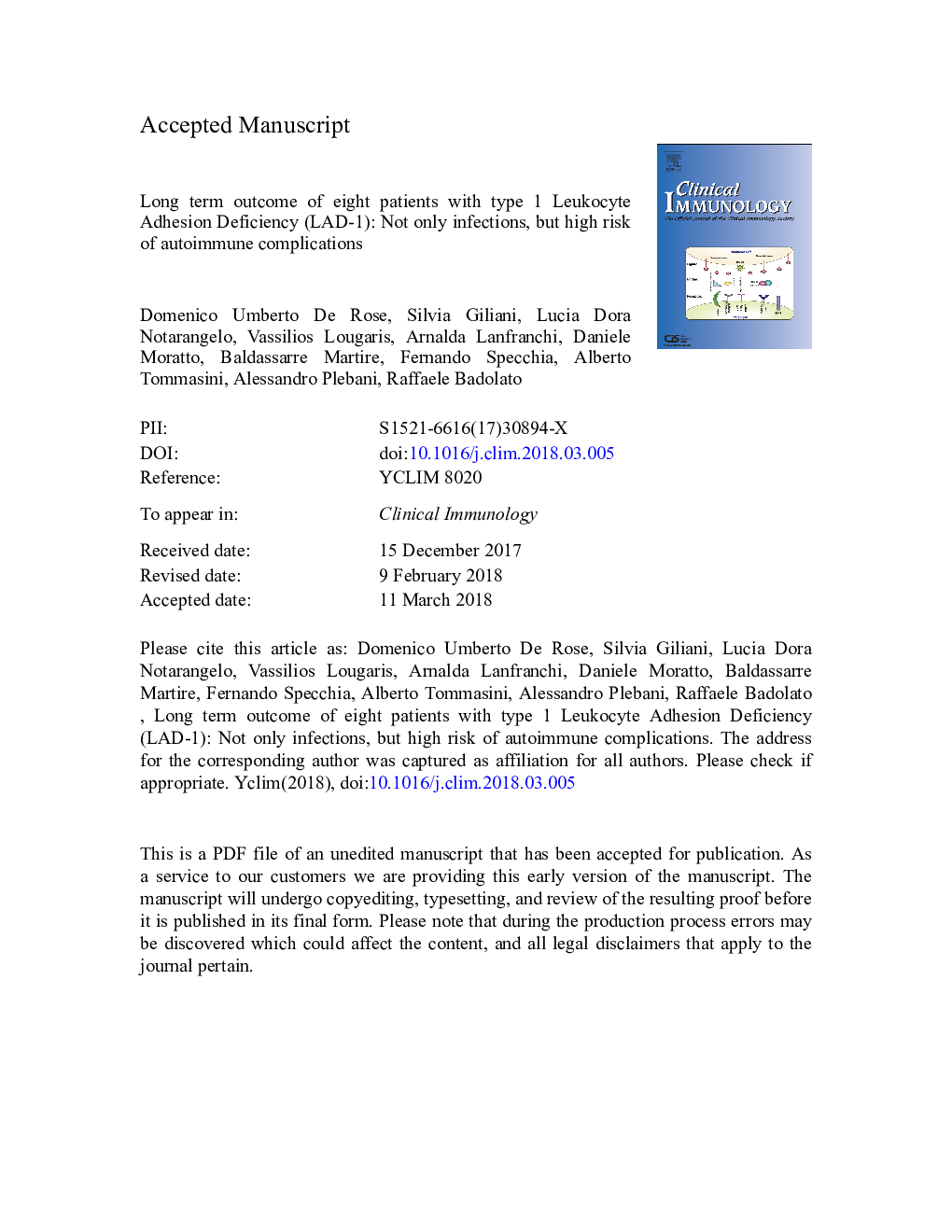| Article ID | Journal | Published Year | Pages | File Type |
|---|---|---|---|---|
| 8721304 | Clinical Immunology | 2018 | 24 Pages |
Abstract
Leukocyte Adhesion Deficiency type 1 (LAD-1) is a rare primary immunodeficiency due to mutations in the gene encoding for the common β-chain of the β2 integrin family (CD18). Herein, we describe clinical manifestations and long-term complications of eight LAD-1 patients. Four LAD-1 patients were treated with hematopoietic stem cell transplantation (HSCT), while the remaining four, including two with moderate LAD-1 deficiency, received continuous antibiotic prophylaxis. Untreated patients presented numerous infections and autoimmune manifestations. In particular, two of them developed renal and intestinal autoimmune diseases, despite the expression of Beta-2 integrin was partially conserved. Other two LAD-1 patients developed type 1 diabetes and autoimmune cytopenia after HSCT, suggesting that HSCT is effective for preventing infections in LAD-1, but does not prevent the risk of the autoimmune complications.
Related Topics
Life Sciences
Immunology and Microbiology
Immunology
Authors
Domenico Umberto De Rose, Silvia Giliani, Lucia Dora Notarangelo, Vassilios Lougaris, Arnalda Lanfranchi, Daniele Moratto, Baldassarre Martire, Fernando Specchia, Alberto Tommasini, Alessandro Plebani, Raffaele Badolato,
